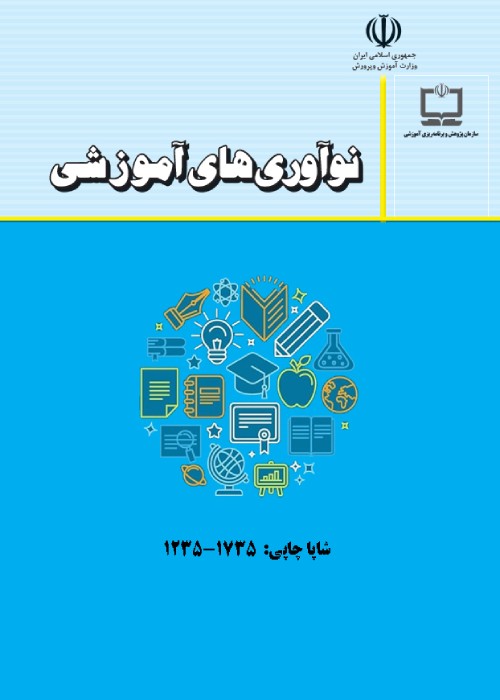The lasting effect of preschool education on Āzari-Turk children's Persain language development and their academic achievement at the end of primary school third grade
Author(s):
Abstract:
Research findings showed that Āzari-Turk children who benefit from preschool education show more Persian oral proficiency and academic achievement than their peer counterparts who do not benefit from such education. However, it is not clear if the better performance of the first group of children continues during later years of education. It was an ex-post-facto study that was done using causal-comparative method. The present study was set out to examine the lasting effect of one year preschool education and the lack of such education on Āzari-Turk children’s Persian oral language proficiency and academic achievement at the end of primary school third grade. Upon their enrollment at grade one, two groups of Āzari-Turk children (G1 = 30, G2 = 30) were examined in terms of their Persian language skills (Rouhi & Behnām, 2011). One group had already attended one year of preschool education, while the other had not and the two groups had significant differences on Persian speaking, organizing, listening, semantics, syntax and phonology on their first days of primary school first grade. The distribution of TOLD – P3 test on the two mentioned groups of children after three years of primary school education showed that the group with one year preschool education outperformed the control group on different subtests of TOLD-P3 test, despite three years of primary school education. Furthermore, the experimental group had better performance on courses dependent on Persian language arts such as Persian language, spelling, composition, Koran, religious studies, social studies and science, compared to the control group. There was no such difference in the performance of the two groups of children on courses such as art and physical education that were independent of the Persian language arts. The scores obtained for the subtests of TOLD including picture vocabulary, relational vocabulary, oral vocabulary, grammatical understanding, sentence imitation, grammatical completion, word discrimination, phonemic analysis, and word naming as well as the spoken components including the spoken language, listening, organizing, speaking, semantics, and syntax were computed for the two groups of the participants. All scores obtained from the subtests and the spoken components were converted to standard and quotient scores, respectively. A comparison conducted between the 2 sets of scores for the 2 groups suggested that except for the relational vocabulary and word discrimination subtests, the group with one year of preschool education outscored the control group in all subtests and quotient scores, despite the fact that both groups had received the same primary school education for 3 years. In addition, in the courses dependent on the Persian language arts, the first group performed better than the latter one, while in the courses independent of the mentioned skills, the two groups of children’s performance was almost the same.
Keywords:
Language:
Persian
Published:
Quarterly Journal of Educational Innovations, Volume:12 Issue: 46, 2013
Page:
157
magiran.com/p1143799
دانلود و مطالعه متن این مقاله با یکی از روشهای زیر امکان پذیر است:
اشتراک شخصی
با عضویت و پرداخت آنلاین حق اشتراک یکساله به مبلغ 1,390,000ريال میتوانید 70 عنوان مطلب دانلود کنید!
اشتراک سازمانی
به کتابخانه دانشگاه یا محل کار خود پیشنهاد کنید تا اشتراک سازمانی این پایگاه را برای دسترسی نامحدود همه کاربران به متن مطالب تهیه نمایند!
توجه!
- حق عضویت دریافتی صرف حمایت از نشریات عضو و نگهداری، تکمیل و توسعه مگیران میشود.
- پرداخت حق اشتراک و دانلود مقالات اجازه بازنشر آن در سایر رسانههای چاپی و دیجیتال را به کاربر نمیدهد.
In order to view content subscription is required
Personal subscription
Subscribe magiran.com for 70 € euros via PayPal and download 70 articles during a year.
Organization subscription
Please contact us to subscribe your university or library for unlimited access!


